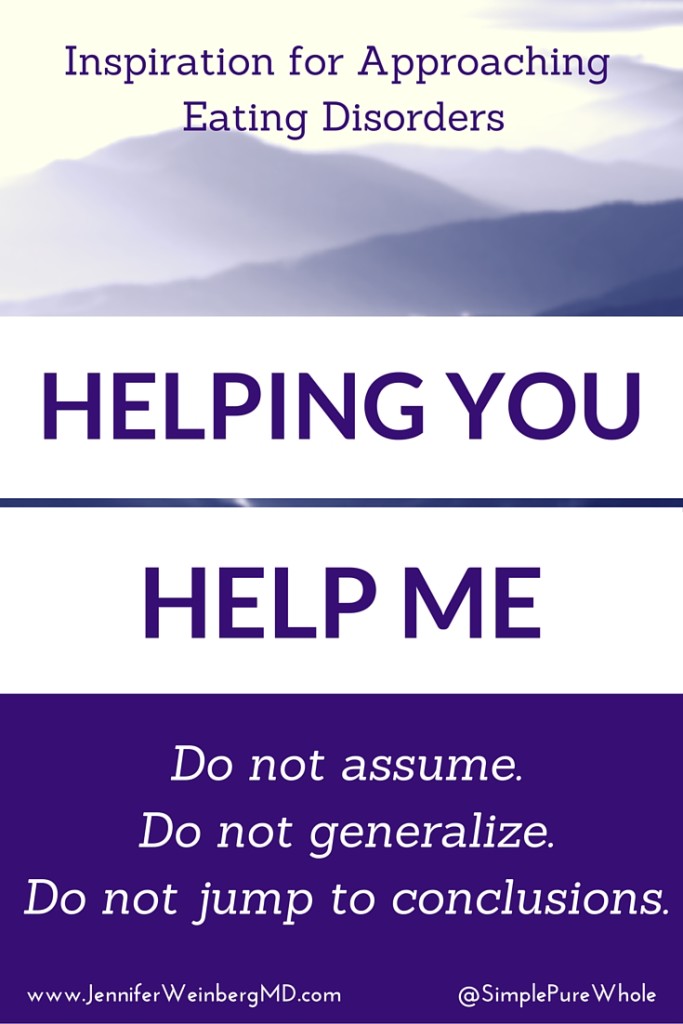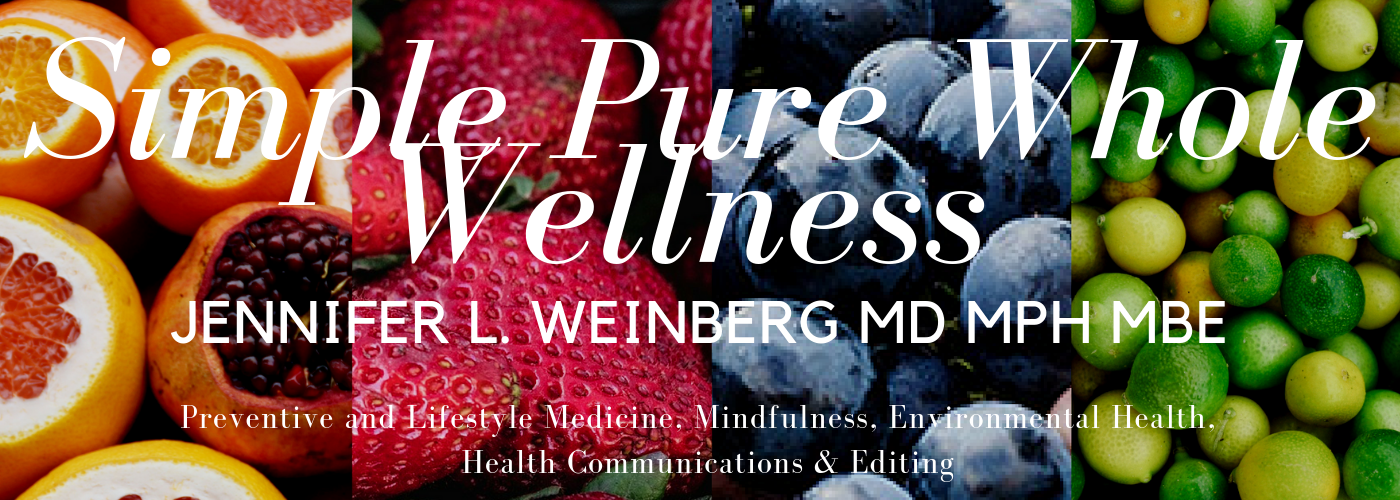I’m on on a mission to make a difference in the lives of other individuals suffering from this illness. Similarly, I’d like to make the medical field’s job in treating patients like me a bit easier too. Awareness is key.
There are many different kinds of eating disorders, but this article will be about Anorexia Nervosa. It is from my perspective and Anorexia is what I’ve been battling for many years. Before I begin, I want to say this will not include numbers such as my highest and lowest weight, it will not include information about treatment stays, feeding tubes, IVs, or medications. I will not share numbers related to calories, fat grams, or hours exercised. All of those things vary greatly from person to person and do NOT indicate the amount or severity of mental suffering that is Anorexia. I will note the physical consequences of this illness but not my own. I don’t want my symptoms to influence what Anorexia looks like to you, because you cannot put a face to it.
This message is lengthy, but I ask you to read it all. Everybody knows someone, and chances are that this information will help you. I’d like to thank everyone in the medical field for what you do. This article is not targeted to say you’re doing it wrong, it’s simply to increase your understanding and abolish any myths you’ve heard or misconceptions that exist. I am grateful for what you do, and I’m alive because of care that I’ve received. Unfortunately, I’ve also had poor treatment too, due to lack of awareness. That is why I want to help.

To begin, let me share what Anorexia is NOT. It is not a diet or a lifestyle choice, it is not vanity or a desire to be beautiful, it is not just a female or Caucasian illness, it is not a result of income status, it is not normal behavior, and it is not a phase or a cry for attention.
Anorexia is a serious and consuming illness. It is characterized by severe restriction of nourishment, a debilitating fear of weight gain (even if significantly underweight), distorted body image, low self-esteem, and a preoccupation with calories and weight. It can result in hair loss, cold intolerance, bone loss, foggy thinking, loss of menstrual cycle in women, fatigue, anemia, and lots more.
These are all symptoms to a much larger issue. The food and weight are a behavior to the addiction. The root is perfectionism and control. Do not confuse a person who is struggling as just neurotic or ‘strung too tight.’ This need for control is typically a result of growing up without it, and the behaviors that offer control become an addiction and a way to regulate emotion.
To explain, I’ll share my experience. Growing up, my home lacked stability to which I had no control over. I had a mother with a severe alcohol addiction. She was vicious when she was intoxicated, and destruction followed her drinking. I often felt stressed, scared, and anxious. I believed that I had to earn my worth in a world I felt insignificant to. Additionally, choices about my body were taken from me. As a childhood abuse survivor, my body was misused at the hands of grown ups, and decisions and beliefs about my body were made for me. I lacked control over my environment as well as my body, and I never felt “good enough” because I couldn’t stop my mom from drinking. I rarely felt safe, and I was often anxious. It wasn’t a conscious choice, but I started to make my own stability. I began doing things that made all those big emotions and negative beliefs feel less intense. I developed behaviors and rituals that reduced my anxiety. For example, I would repeat things to “undo” them, I would hold my breath to see how strong I could be, I would skip meals that I didn’t “earn” and I kept the abuse a secret because I didn’t want anyone to find out how “bad” I was.
Skipping meals became more and more frequent as I began losing weight. It wasn’t intentional at first to lose weight, and it wasn’t to look better in my clothes or to resemble a celebrity. It just felt like something I was good at, I could use to manage myself, and it made me less visible. I’ve always hated taking up space. Then the fear of weight gain and loss of control came strong when I was confronted with food. I didn’t want anything to do with it. It took away my safety and stability that I felt like I had by controlling my weight and what I ate. I also believed I didn’t deserve food or enjoyment from it. I was told I ate too much and that I was too big. Sometimes, many of those beliefs and anxieties still come up, but I can respond to them with truth now. I’ve experienced more safety and stability as an adult, I’ve found things that make me feel worthy, and I know that everyone deserves food. The thing I still struggle with the most is taking up space and wanting control over my body. As a result, it’s an ongoing battle.

I explained all of that to give you an explanation of what the experience feels like inside. It helps when providers are compassionate and non-judgemental. When they are not those things, it’s usually a result of the misconceptions that the illness is a lifestyle choice based on superficial reasons.
Now you know the truth. Moving along, I’d like to share what is helpful from a person treating me medically. First and foremost, do not make an opinion or diagnosis or even a comment based on scanning my appearance. You cannot measure suffering or health by looking at me. The scale only shows one thing, and clothes can hide a lot.
Also be careful to not minimize struggle or pain with a comment like “Well, you look good!” That’s not the point. Also, people can appear healthy physically for several reasons, but that does not mean they are not intensely suffering.
If you’re ever unsure what to do or say, be honest about it. That’s the most respectful thing to do, and I always appreciate being on the receiving end of honesty. Ask me what would be helpful, and the worst I can say is “I don’t know.” Chances are I can tell you what helps and doesn’t help though. As a good rule of thumb though, never be a food cop, a bully, or an enabler, and always listen with an open heart and mind to the person, and you’ll do great.
The last word of caution is do not treat an eating disorder alone. Treat the person suffering with it. If you have a patient coming to you with a sinus infection, a fractured wrist, or an unknown source of fevers or pain, get to the bottom of what’s causing it or how to treat it, and never excuse a complaint with “your eating disorder caused that.” The eating disorder is not a choice, sickness is not self-inflicted, and malnutrition does not cause autoimmune disease or cancer or the stomach flu.

Be your best you, do your best work, and never stop seeking more understanding. You make a difference in lives everyday. Choose to listen, be compassionate, and strive for healing.






Comments
Deborah Davis
It is so important to raise awareness of the unique needs and challenges of people with eating disorders. “Be your best you, do your best work, and never stop seeking more understanding” really resonates with me. I have heard of many people with eating disorders who were misunderstood and misdiagnosed for years. Thank you for sharing this powerful perspective at the Healthy Happy Green & Natural Party. I’m pinning and sharing.
Dr. Jennifer L. Weinberg, MD, MPH, MBE
Thank you Deborah! I appreciate your insightful comments so much
Leigh
Thank you for sharing these important thoughts at the Healthy Living Link Party. Hopefully someone will find the help they need because of your post.
Blessings, Leigh at A Chat Over Coffee
Dr. Jennifer L. Weinberg, MD, MPH, MBE
Thank you so much Leigh! Hope you have a wonderful week.